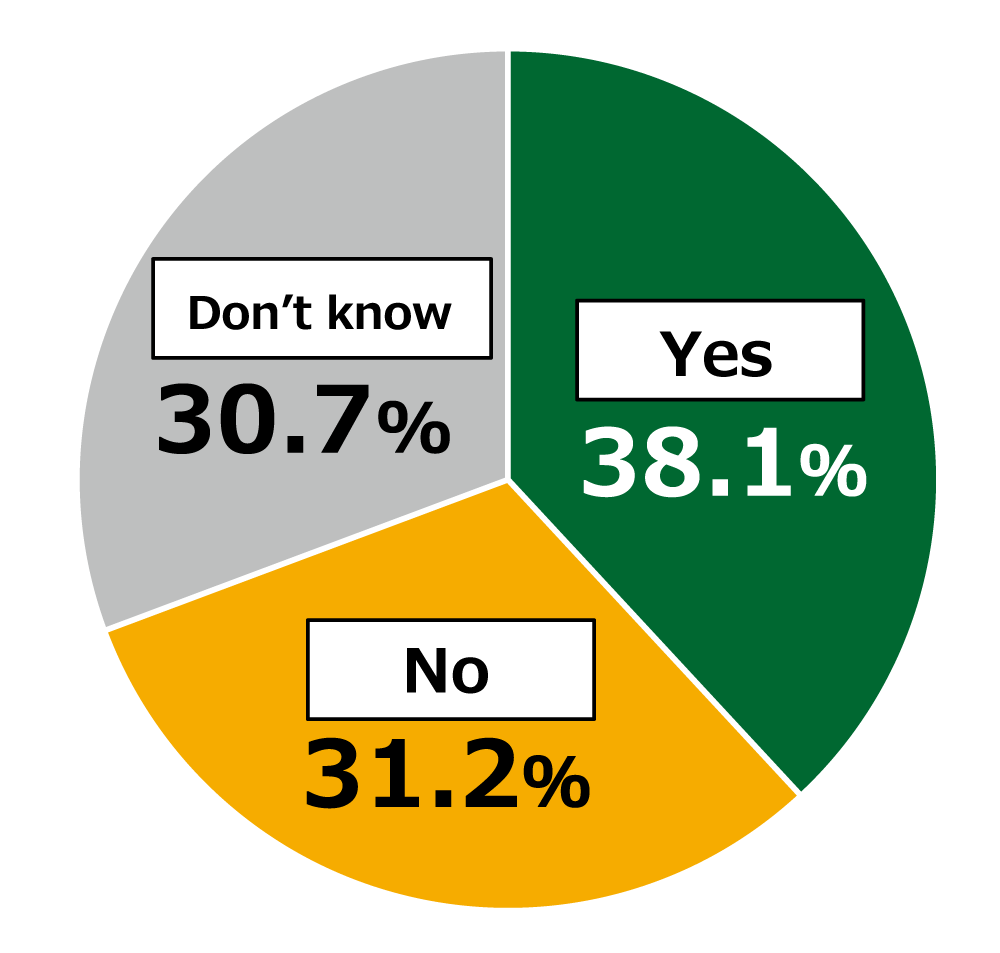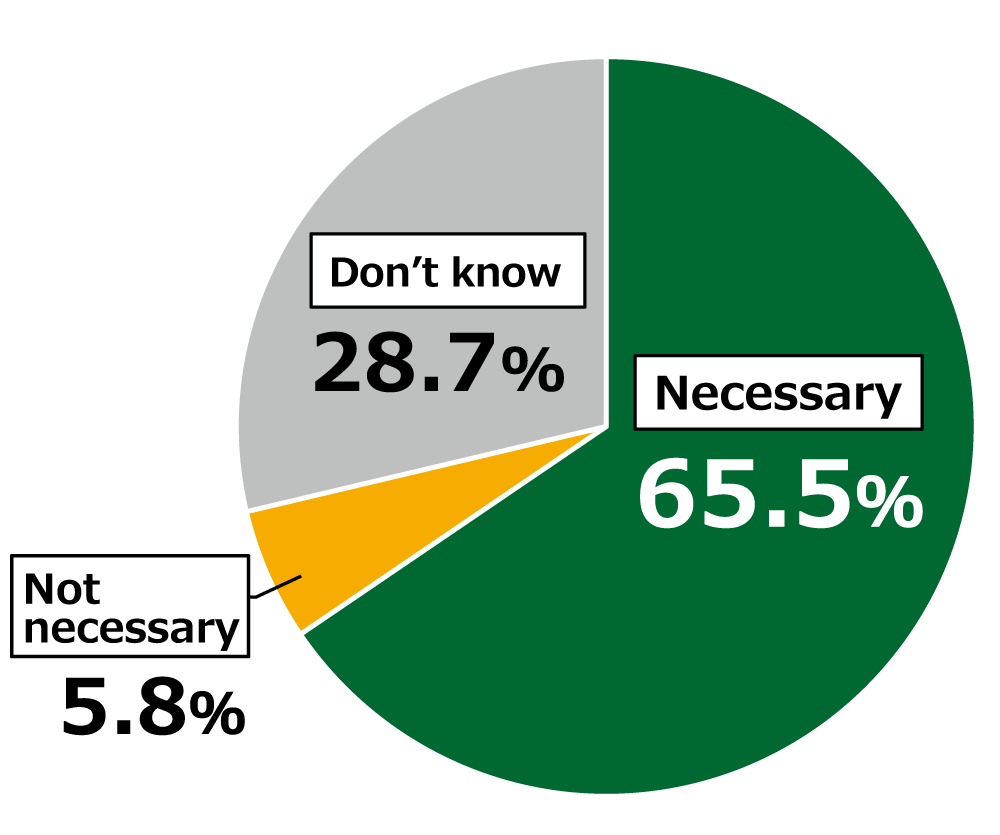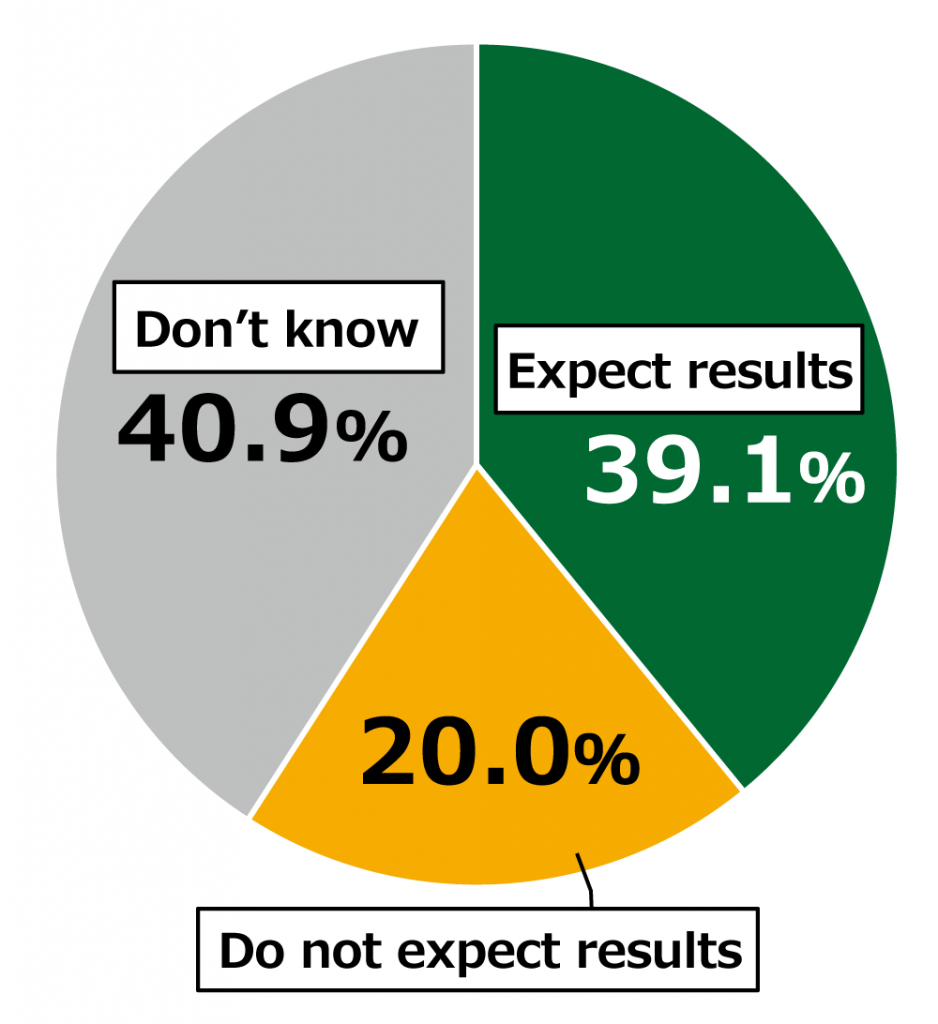Awareness Survey of 18-Year-Olds: DigitalizationResults of 32nd installment announced
With the new coronavirus crisis accelerating the use of digital technologies, the 32nd installment of the Awareness Survey of 18-Year-Olds, launched by The Nippon Foundation in October 2018, was carried out from November 13 to 17 on the subject of “Digitalization.” Opinions regarding Japan’s pace of digitalization were divided, with roughly 38% calling it “lagging” and roughly 31% saying that it was not. The top areas in which respondents wanted to see digitalization progress were “online learning” (36%) and “making it easier to receive new coronavirus-related subsidies” (25%). More than 60% of respondents considered government efforts to promote digitalization as “necessary,” while less than 6% felt they were “not necessary.” Of those favoring these government efforts, more than half gave “maintaining national strength” and “facilitating government services” as their reasons.
Of respondents who felt Japan’s digitalization is lagging, the top reasons given were “firmly rooted customs including paper documents and face-to-face meetings” (34%) and “a sense of difficulty” (32%). Roughly 39% of respondents expect results from the digital agency the government plans to establish in the fall of 2021, which was almost twice the percentage of those who do not. When asked what is needed to promote digitalization, the top responses were “teaching of information and communications technologies in schools” and for the “national government to take the initiative.” In addition, fewer than one in five respondents felt they possessed the knowledge needed for digitalization.
Notes:
- From the 13th survey, the number of respondents, comprising men and women aged 17 to 19, has been increased to 1,000 from 800. (With the exception of the 20th installment, “Awareness Survey of Society and Country,” all surveys cover respondents in Japan only.)
- In the information below, differences between total amounts and simple sums are due to rounding.
- For this survey only, respondents affiliated with the following industries were excluded: Printing and publishing; Mass media and media-related; Information services and research services; Advertising
Survey 32. Digitalization (Results announced on December 24, 2020)
Finding: More than one-third of respondents consider Japan’s pace of digitalization to be “lagging.” (n = 1,000)
“Do you consider Japan’s pace of digitalization to be lagging?”
Yes – 38.1%
No – 31.2%
Don’t know – 30.7%

Finding: Close to two-thirds of respondents considered government efforts to promote digitalization as “necessary.” (n = 1,000)
“Do you consider government efforts to promote digitalization as “Necessary”?
Necessary – 65.5%
Not necessary – 5.8%
Don’t know – 28.7%

Survey Highlights
The pace of digitalization in Japan is seen as “lagging” (38.1%) vs. “not lagging” (31.2%)
Where progress in digitalization is wanted – “online learning” (35.9%)
National government efforts to promote digitalization are considered “necessary” (65.5%) vs. “not necessary” (5.8%)
Reasons government efforts are necessary: “maintaining and increasing national strength” (52.8%), “facilitating government services” (52.4%)
Reasons digitalization of government procedures are lagging: “firmly rooted customs including paper documents and face-to-face meetings” (34.1%), “a sense of difficulty” (31.8%)
Results from planned government digital agency: “expected” (39.1%) vs. “not expected” (20.0%)
Used on a daily basis: “personal computer” (56.7%), “smartphone or tablet” (91.2%
Possess the knowledge needed for digitalization: “Feel that I do” (23.5%) vs. “Do not feel that I do” (51.2%)
Areas of daily life where increased digitalization is sought
“Are there areas of daily life where you would like to see digitization progress?” (multiple answers allowed; n = 1,000)
| 1.Online learning | 35.9% |
|---|---|
| 2.Making it easier to receive new coronavirus-related subsidies | 24.8% |
| 3.Government procedures | 23.5% |
| 4.Internet voting | 22.2% |
| 5.Academic transcripts and student IDs | 20.3% |
| 6.Driver’s licenses, government-issues ID cards, other official documents | 19.9% |
| 7.Updates on situation regarding new coronavirus infections, etc. | 14.7% |
| 8.Elimination of affixing personal seals to documents | 13.5% |
| 9.Online medical care | 11.6% |
| 10.Management of products experiencing excessive demand (e.g., face masks) | 9.7% |
| Other | 0.7% |
| None in particular | 20.0% |
Finding: Twice the number of respondents expect results from the planned digital agency compared with those who do not. (n = 1,000)
“Do you expect results from the digital agency the government plans to establish in the fall of 2021”?
Expect results – 39.1%
Do not expect results – 20.0%
Don’t know – 40.9%

Contact
Public Relations Team
The Nippon Foundation
- Email: cc@ps.nippon-foundation.or.jp



